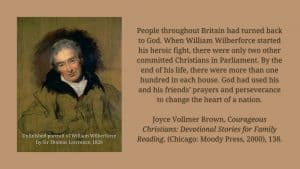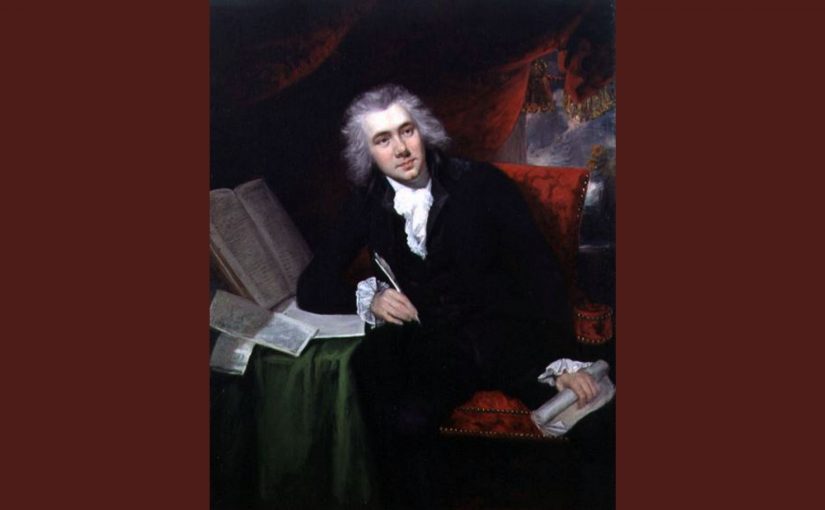Where slavery has been eliminated, Christians have been largely responsible for making it happen. Consider, for example, William Wilberforce. Wilberforce was born in Great Britain in 1759 into a wealthy family, Growing up, he enjoyed the many material and social advantages that wealth afforded him. He attended Cambridge University, and in 1780 he was elected to Parliament. He had many friends and enjoyed the social life that went along with his position — but later, reflecting on his initial years in Parliament, he admitted, “The first years in Parliament I did nothing – nothing to any purpose. My own distinction was my darling object.”
That changed when William became a Christian in 1786. Soon thereafter he became burdened about slavery, which he considered to be a blight on his country. He thought of leaving Parliament to serve God, but several Christian friends (including slave-trader-turned-Christian John Newton, who authored the hymn “Amazing Grace”) encouraged him to remain in Parliament and honor God there. The following video is a powerful 38-second clip from the 2006 movie about William Wilberforce’s life — Amazing Grace.
Wilberforce began what became a 20-year long quest to end the slave trade in England through the legislative process. Year after year he would introduce bills that would restrict or eliminate the slave trade, and year after year they were defeated. He was opposed, mocked, and ridiculed, but over time he earned the respect of his colleagues and of the British people. Finally, in 1807, Wilberforce’s bill to end the slave trade in England passed in Parliament and became law. Three days before he died on July 29, 1833, Parliament passed a law that ended slavery in Great Britain by giving slaves their freedom.
In her book Courageous Christians: Devotional Stories for Family Reading, Joyce Vollmer Brown concludes her biographical sketch of William Wilberforce this way:
People throughout Britain had turned back to God. When William Wilberforce started his heroic fight, there were only two other committed Christians in Parliament. By the end of his life, there were more than one hundred in each house. God had used his and his friends’ prayers and perseverance to change the heart of a nation.1

A PDF file of this slide is available here.
You can find a more detailed summary of William Wilberforce’s life, along with questions for reflection and discussion, here. A reproducible PDF copy is available here. A reproducible file of the questions and discussion starters is available here.
Questions for Reflection and Discussion
-
-
- In your own words, what is the main lesson arising for Christians today from the life of William Wilberforce?
- How was all of England affected by Wilberforce’s lifelong efforts to end the slave trade, and eventually slavery itself?
- Suppose Wilberforce had resigned from Parliament soon after becoming a believer. What would England, and the world, have lost?
- How was the gospel advanced by Wilberforce’s efforts, even though his work did not focus narrowly on preaching the gospel itself?
- Consider the idea that there is no arena over which God does not have jurisdiction. In practical terms, what kinds of things does this truth mean for a Christian in his or her everyday life?
- Why do some say that preachers and even all Christians should stay out of politics? What does the life of William Wilberforce teach us about this idea?
- In what kind of work are you regularly engaged? How can you glorify God in that work?
- What can you do to influence public policy for the glory of God?
-
Copyright © 2022 by B. Nathaniel Sullivan. All rights reserved.
Note:
1Joyce Vollmer Brown, Courageous Christians: Devotional Stories for Family Reading, (Chicago: Moody Press, 2000), 138.
top image credit: William Wilberforce by John Rising, 1790, pictured at the age of 30 ~ A PDF file of this slide is available here.
